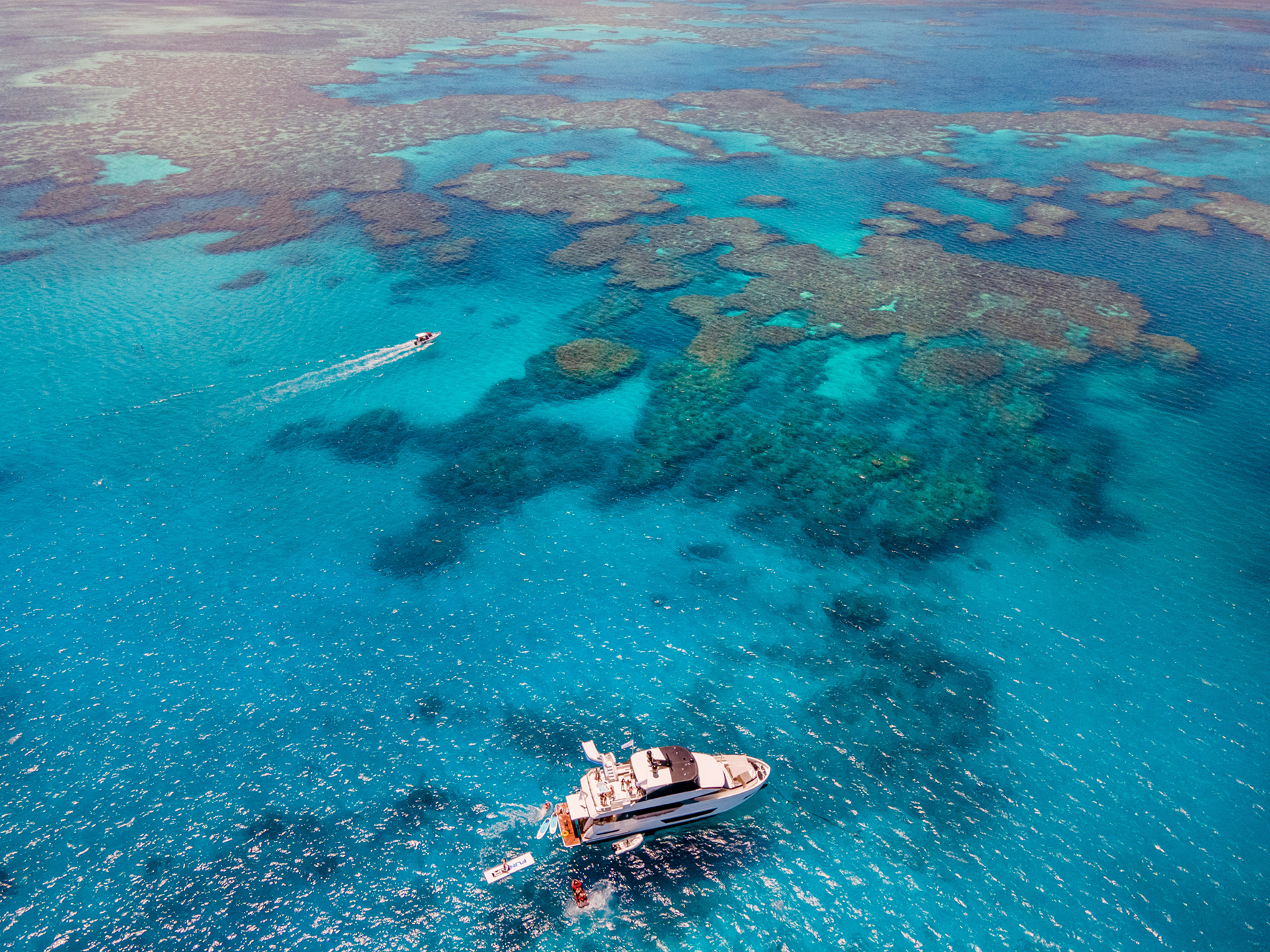
Hamilton Island Marina’s Jeanette Harris shares some practical advice to help you protect the marine environment.
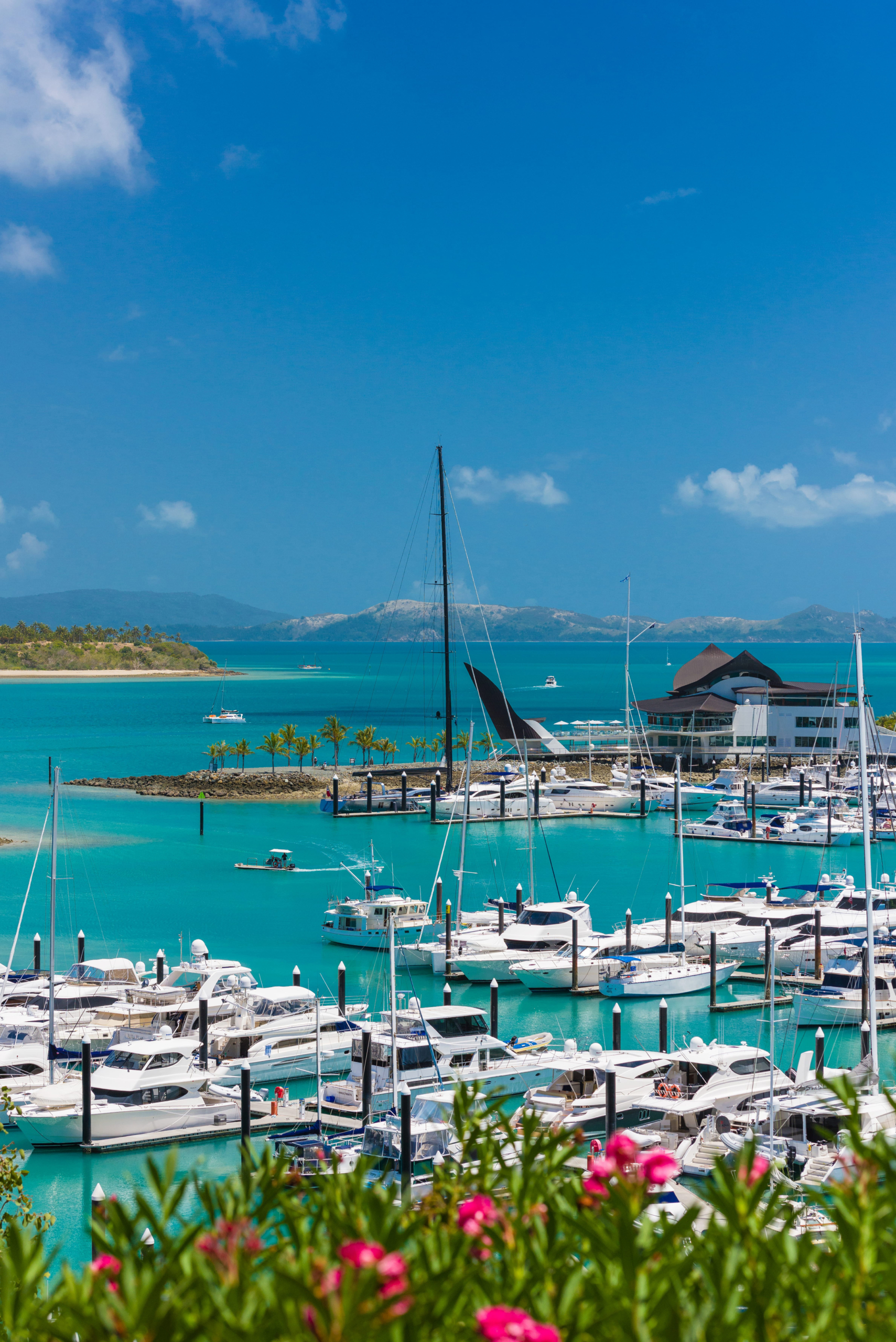
Responsible boating isn’t about restrictions – it’s about protecting what we love. Whether you’re on a yacht, fishing boat or day cruiser, small actions make a big impact when it comes to protecting our marine environment. Here are some practical tips to help you enjoy your time out on the water sustainably while preserving our marine environment for future generations.
Clean below? Good to go!
Biofouling, the build-up of marine organisms on your hull, doesn’t just slow your boat down; it can spread invasive species and damage fragile marine habitats. Help prevent the spread of marine pests by keeping your hull, propeller and underwater gear clean. Antifoul regularly using products approved for marine parks and avoid transporting or moving your vessel between regions without a thorough clean before departure. A clean hull means lower fuel use, faster performance, and healthier waterways.
Choose eco-friendly and sustainable products
When cleaning your boat, choose biodegradable, phosphate-free, and non-toxic products. Harsh chemicals harm marine life – especially in shallow waters and marina environments. Also, consider the everyday items you bring on board. This includes using reef-safe sunscreen (free from oxybenzone and octinoxate), choosing reusable containers and utensils and sourcing local supplies to support regional communities and reduce emissions. A sustainable boat is more than what’s on the outside – it’s also about what you bring with you.
Keep your bilges clean and oil-free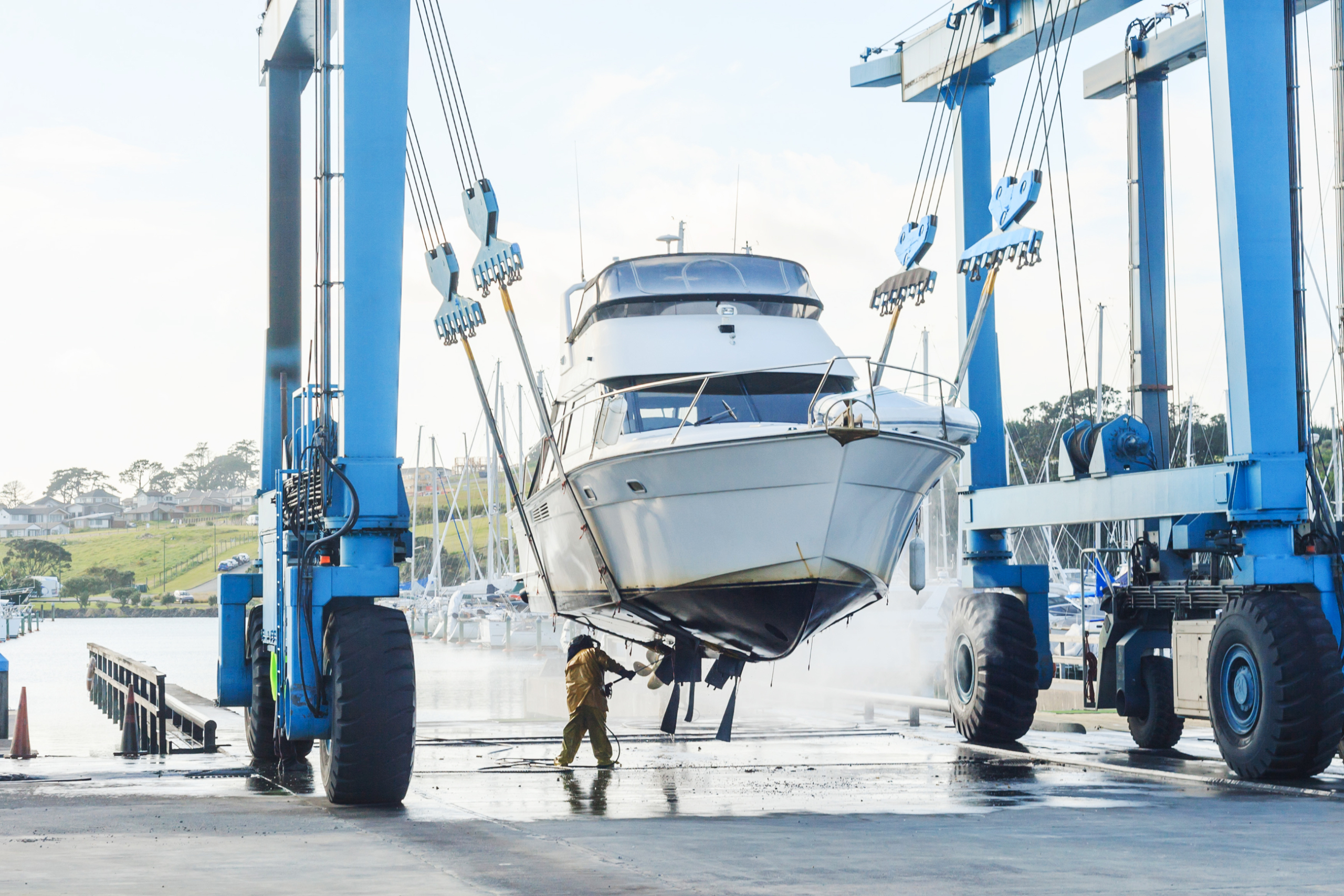
Oil and fuel leaks can be devastating to our marine life, even small amounts contaminate large volumes of seawater. Regularly check your engine and bilge area for leaks. Use bilge pads or ‘oil socks’ to absorb any fuel and oil that does accumulate in bilges and never pump oily water overboard. Always dispose of used absorbents responsibly at your marina or waste facility.
Don’t feed the fish (or the ocean)
Throwing food scraps overboard may seem harmless, but it disrupts marine ecosystems and can attract unwanted pests. Keep all rubbish and take it ashore for disposal, including food waste.
Avoid feeding fish as it changes natural behaviour and can lead to population imbalances. Use designated bins at your marina to recycle bottles, cans and plastics. The Eco Barge Bins we have at Hamilton Island Marina contribute to the local Eco Barge Clean Seas initiative.
Anchor with care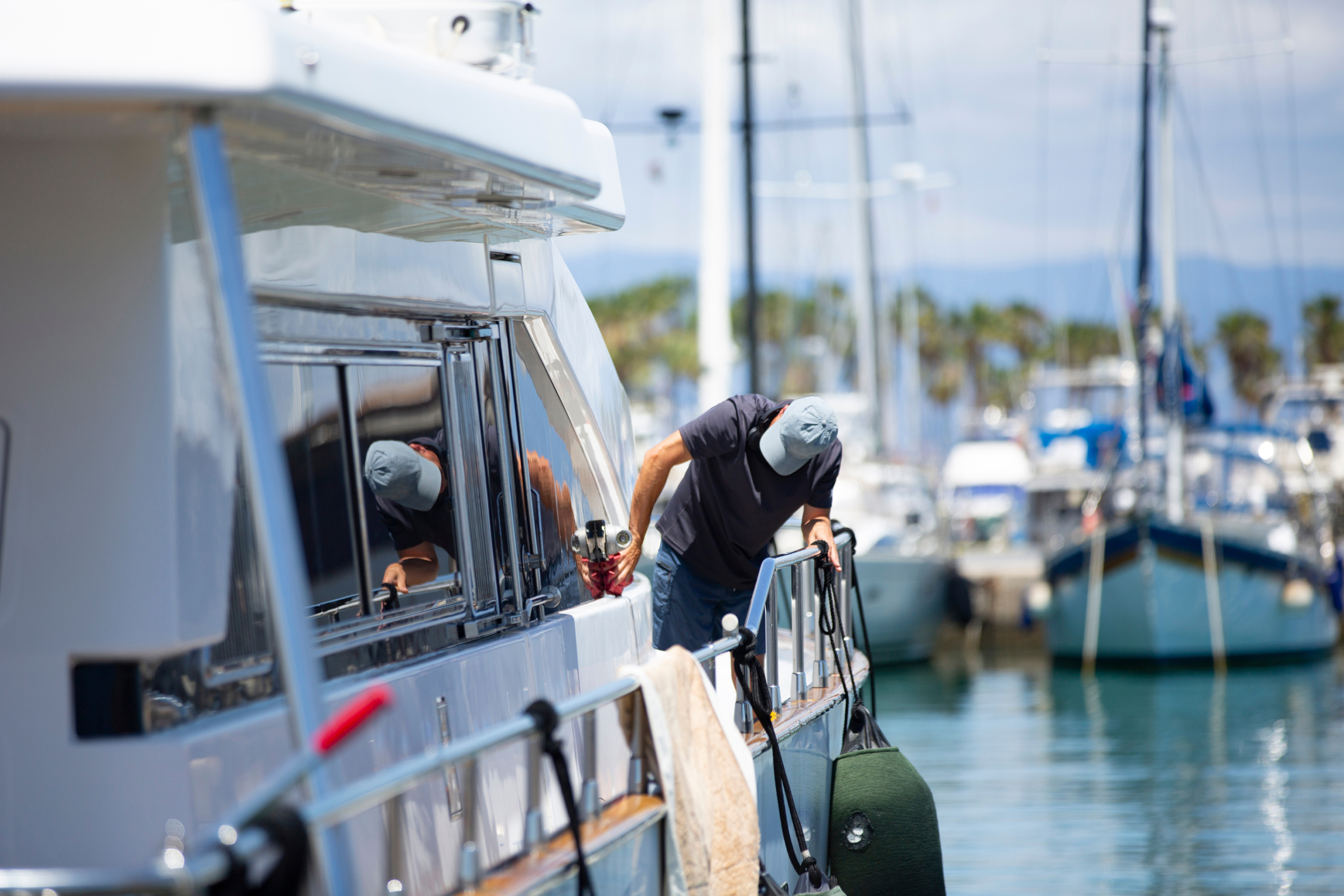
Anchoring directly on coral, seagrass, or reef structures can cause irreversible damage. Always use public moorings where available and if anchoring, choose sandy patches and avoid sensitive habitats. Check with local authorities for permitted anchoring zones.
Keep a lookout for marine wildlife
To protect marine wildlife we recommend being especially vigilant during whale migration and turtle nesting seasons. Reduce speed and keep your distance and report injured or distressed wildlife to local authorities.
Maintain your vessel responsibly
Well-maintained boats are not only safer and more efficient – they’re also better for the environment.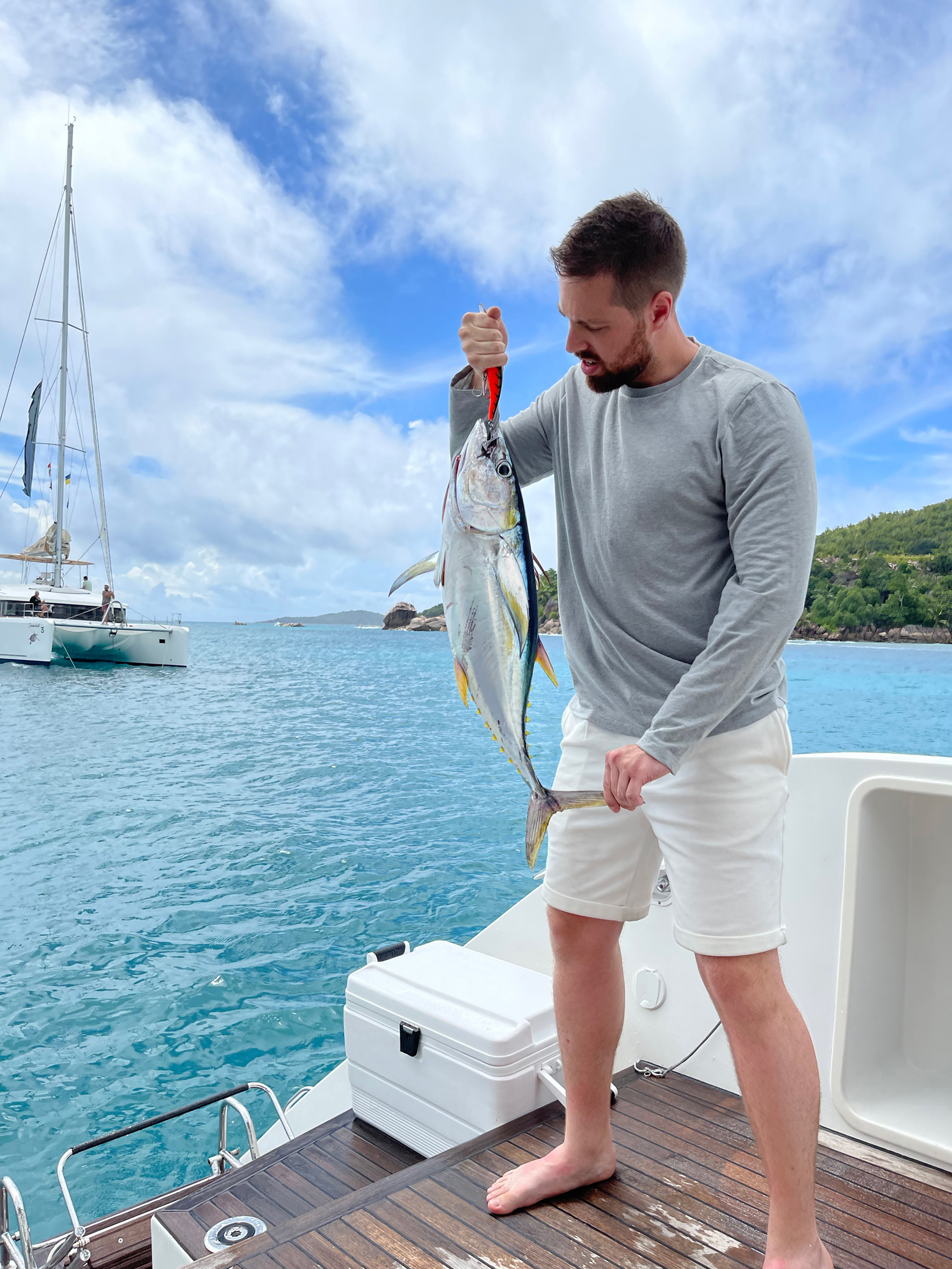
- Regularly service your engine to reduce emissions and fuel use.
- Check for and repair any leaks, drips, or corrosion.
- Ensure your sewage system is compliant and never discharge untreated waste into the ocean.
- Dispose of old batteries, oil filters, and parts at appropriate recycling or hazardous waste facilities.
- Routine maintenance prevents small issues from becoming costly – both financially and environmentally.
Respect the places you visit
Whether you’re exploring a secluded beach, a reef lagoon, or a remote island, the golden rule is simple: take only memories, leave only footprints.
- Avoid collecting shells, coral, or marine life.
- Stick to established pathways when going ashore to protect fragile vegetation and nesting sites.
- Leave no trace of your visit – pick up all rubbish, even if it isn’t yours.
- Respect cultural sites and marine park zoning rules.
Fishing and marine park zoning
Fishing is a cherished pastime, but it must always be done responsibly and legally. Marine parks have strict regulations regarding fishing and different zones within a marine park can have different fishing regulations, so it’s important to make sure you understand and follow zoning rules. Always release undersized or unwanted fish quickly and safely. Use only native bait and avoid releasing introduced species. Never discard tackle, bait bags, or lines overboard – dispose of them properly on land.
Visit hamiltonisland.com.au
For boating news, features and interviews, subscribe to Nautilus Marine Magazine here.
